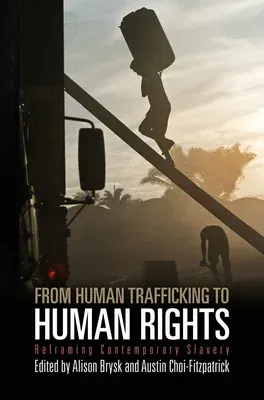Over the last decade, public, political, and scholarly attention has
focused on human trafficking and contemporary forms of slavery. Yet as
human rights scholars Alison Brysk and Austin Choi-Fitzpatrick argue,
most current work tends to be more descriptive and focused on
trafficking for sexual exploitation.
In From Human Trafficking to Human Rights, Brysk, Choi-Fitzpatrick,
and a cast of experts demonstrate that it is time to recognize human
trafficking as more a matter of human rights and social justice, rooted
in larger structural issues relating to the global economy, human
security, U.S. foreign policy, and labor and gender relations. Such
reframing involves overcoming several of the most difficult barriers to
the development of human rights discourse: women's rights as human
rights, labor rights as a confluence of structure and agency, the
interdependence of migration and discrimination, the ideological and
policy hegemony of the United States in setting the terms of debate, and
a politics of global justice and governance.
Throughout this volume, the argument is clear: a deep human rights
approach can improve analysis and response by recovering human rights
principles that match protection with empowerment and recognize the
interdependence of social rights and personal freedoms. Together,
contributors to the volume conclude that rethinking trafficking requires
moving our orientation from sex to slavery, from prostitution to power
relations, and from rescue to rights. On the basis of this argument,
From Human Trafficking to Human Rights offers concrete policy
approaches to improve the global response necessary to end slavery
responsibly.

